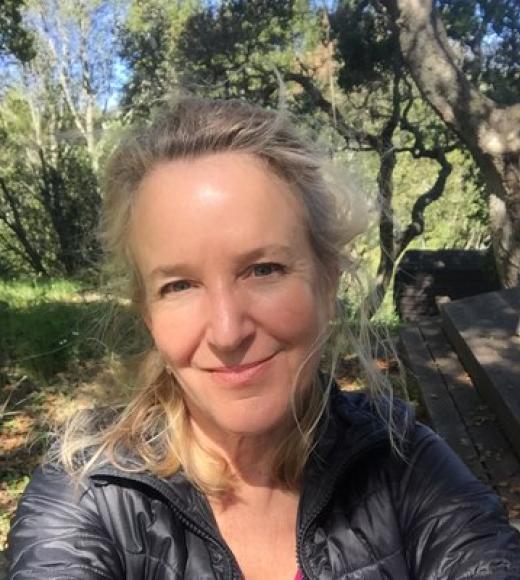
Position Title
Professor
- smsawyer@ucdavis.edu
- https://lettersandsciencemag.ucdavis.edu/self-society/uc-davis-anthropologist-w…
- https://americanethnologist.org/news/aes-senior-book-prize-2024-winners/
https://ucdavis.zoom.us/j/99484199095?pwd=gAxEcpSXXzDU9I9a8acX58aUFqlwQ3.1
MU (outside while the weather is good!)
Education
- Ph.D., Anthropology, Stanford University, 1997
- M.A., Anthropology, Stanford University, 1989
- B.A., Anthropology, University of California, Berkeley, 1986
Research Focus
My research has focused on controversy surrounding resource extraction. My first book, Crude Chronicles (2004), explores the conflictive intersection of indigenous politics, petroleum corporations, and neoliberalism in the Ecuadorian Amazon. It suggests that struggles over resource use are simultaneously struggles over identity and territoriality. In a country scarred by inequalities, contrary logics of resources use represented challenges to the legitimacy of an historically exclusionary state, as well as occasions for redefining the terms of nation, nature, and sovereignty in a globalizing world. Tracing the emergence of one of twentieth-century Latin America’s strongest indigenous movements, I show how hydrocarbon conflict was as much about reconfiguring national and transnational inequality—that is, rupturing the silence around racial injustice, exacting spaces of accountability, and rewriting narratives of national belonging—as it was about the material use and extraction of hydrocarbon capital.
My co-edited volume (with Terence Gomez), The Politics of Resource Extraction (2012), examines conflicts over mining and hydrocarbon projects in eight countries. In particular, the book explores how notions of indigeneity serve to both empower and debilitate indigenous initiatives engaging mega-development projects, as multinational corporations, state agencies, and multilateral institutions appropriated, normalized, and depoliticized the concept and practice of indigeneity. The volume critically engages with the unintended delegitimizing effect of an increasingly global trend to codify understandings of indigenous identity in national and international law.
My book, The Small Matter of Suing Chevron (2022), won the American Ethnologist Senior Book Prize which "celebrates outstanding ethnographic works that address contemporary social issues with relevance beyond the academy." The book traces a 25-year legal saga. In 2011, an Ecuadorian court issued the world’s largest environmental contamination liability: a $9.5 billion judgment against Chevron. Within years, a US federal court and an international tribunal determined that the Ecuadorian judgment had been procured through fraud and was unenforceable. The Small Matter delves into this legal trilogy to explore how distinct legal truths were relationally composed of, with, and through crude oil. In my analysis, chemistry proves crucial. Analytically, it affords a grammar for appreciating how molecular, technical, and legal agencies catalyzed distinct jurisdictional renderings. Empirically, the chemistry of hydrocarbons (its complexity, unfathomability, and misattribution) significantly shaped competing judicial determinations. Ultimately, chemical, scientific, contractual, and litigating techniques precipitated this legal saga’s metamorphic transformation, transmuting a contamination claim into an environmental liability, then a racketeering scheme, and then a breach of treaty. Holding the paradoxes of complicity in suspension, I seek to demonstrate how crude matters, technoscience, and liberal legality configure how risk and reward, deprivation and disavowal, suffering and surfeit become legally and unevenly distributed.
I am currently working on a collaborative project, "Carbon Times" that explores the multiple analytic capacities that chemical philosophy and the practice of chemistry afford the humanistic social sciences when thought materially and metaphorically. It seeks to tap chemistry—a discipline long focused on volatile reactions, transmutations, and open systems—and its historically shifting methods as inspiration for thinking the complex and unstable materializations of our world. It asks: what capacities and modalities emerge when we think of the chemical as substantively, semiotically, and poetically agentive of processes far beyond the molecular?
Publications
Books
- Sawyer, S. (2022) The Small Matter of Suing Chevron. Durham, NC: Duke University Press.
- OpenAccess https://library.oapen.org/handle/20.500.12657/58916
- AES Senior Book Prize https://americanethnologist.org/news/aes-senior-book-prize-2024-winners/
- Podcast "New Books Network" https://newbooksnetwork.com/the-small-matter-of-suing-chevr
- Book Review by Marilyn Strathern Society Review of The Small Matter of Suing Chevron
- Sawyer, S. & Gomez, T. (eds.) (2012) The Politics of Resource Extraction: Indigenous Peoples, Corporations and the State, London, UK: Palgrave Macmillan.
- Sawyer, S. (2004) Crude Chronicles: Indigenous Politics, Multinational Oil, and Neoliberalism in Ecuador. Durham, NC: Duke University Press.
Articles and Chapters
- Sawyer, S. (2022) “Caught in a Legal Vortex: Time, Technique, and Corporate Fraud-Worlding” (with Lindsay Ofrias) in Handbook on Oil and International Relations, Roland Dannreuther and Wojciech Ostrowksi, eds. Cheltenham, UK: Edward Elgar Publishing.
- Sawyer, S. (2018) “Corporations” in The Wiley Blackwell International Encyclopedia of Anthropology. Hilary Callan and Carol Greenhouse, ed. Malden, MA: Wiley.
- Sawyer, S. (2017) “Modes of Potentiality” in collection on “Chemical Geographies.” GeoHumanities 3(1): 170-177.
- Sawyer, S. (2015) “Crude Contamination: Law, Science, and Indeterminacy in Ecuador and Beyond” in Subterranean Estates: Life Worlds of Oil and Gas, Hannah Appel, Arthur Mason, and Michael Watts, eds. Ithaca: Cornell University Press.
- Sawyer, S. (2010) Human Energy, Dialectical Anthropology. 34 (1): 67-77.
- Sawyer, S. (2009) Suing ChevronTexaco, In Ecuador Reader: History, Culture, Politics, Steve Striffler and Carlos de la Torre (Eds.), Durham: Duke University Press.
- Sawyer, S. (2007) Empire/multitude–state/civil society: Topographies of power through transnational connectivity in Ecuador and beyond, Social Analysis. 51 (2): 64-85.
- Sawyer, S. (2006) “Disabling Corporate Sovereignty in a Transnational Lawsuit” Political and Legal Anthropology Review 29 (1): 23-43.
- Sawyer, S. (2002) “Bobbittizing Texaco: Dis-membering Corporate Capital and Re-membering the Nation in Ecuador” Cultural Anthropology 17 (2): 150-180.
- Sawyer, S. (2001) “Fictions of Sovereignty: Prosthetic Petro-Capitalism, Neoliberal States, and Phantom-Like Citizens in Ecuador.” Journal of Latin American Anthropology 6 (1): 156-197.
- Sawyer, S and A. Agrawal. (2000) “Environmental Orientalisms.” With Cultural Critique 45: 71-108.
Awards
- American Ethnological Society, Senior Book Prize 2024
- Wenner-Gren Foundation Workshop Grant 2022-2023
- UC Humanities Research Institute (UCHRI) Short-Term Residency 2022
- UC Davis Humanities Institute, Network-Collaboration Fellowship 2020-2024
- American Council of Learned Societies (ACLS) Fellowship 2017-2018
- UC Presidents Faculty Research Fellowship in the Humanities, 2017-2018
